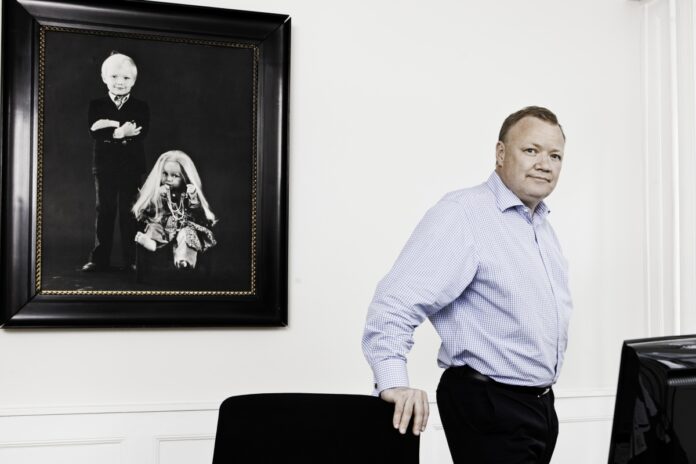Diversionary tactic no excuse to skip net cost contribution
Google has come under fire for using net neutrality as a smokescreen as mobile network operators press for infrastructure payments in Europe. This alleged diversionary tactic is irrelevant, according to analyst John Strand (pictured), founder and CEO of telecoms research house Strand Consult, since the relevant EU legislation does not ever mention net neutrality. Meanwhile, Google has contributed to network costs in other parts of the world.
At the annual FT-ETNO panel in Brussels Monday, Google’s EMEA President Matt Brittin debated the cost sharing issue with luminaries including Orange CEO Christel Heydemann. Neither Heydemann, BEREC Chair Konstantinos Masselos or Italy’s Minister of Technological Innovation Vittorio Colao could get agreement from the Google representative.
Brittin rejected the notion of fair cost recovery for broadband investment, saying it runs counter to net neutrality. But that defence holds no water when Google’s arguments for tax avoidance in the UK and its infrastructure agreements in South Korea are considered, according to Strand.
“Strand Consult has researched net neutrality for decades for governments, vendors and other stakeholders in the telecoms industry. After all the research notes and reports we have written, we can say with confidence that the relevant European Union Parliament law Regulation (EU) 2015/2120 does not even contain the term net neutrality,” said Strand
The EU rule on net neutrality specifically prohibits broadband providers from blocking and throttling end users. The Body of European Regulators for Electronic Communications (BEREC) bi-annual reports maintain that there is no problem with net neutrality in the EU today, and that there was not deliberate, systematic violation by broadband providers before the rules were adopted. Nothing in EU policy stops Google from helping to improve connectivity by supporting cost recovery in the broadband middle and last mile. Hence there is no inherent conflict between fair cost recovery and net neutrality.
At the FT-ETNO event Brittin boasted about Google’s infrastructure investment saying, “We carry traffic 99 percent of the way, bringing it closer to users and making it more efficient for our telco partners.” In fact, Google only has data centres in five strategic EU countries. There are 22 EU countries where Google finds it uneconomic to invest. Brittin’s claim is false as a matter of distance and cost.
Google may have invested in undersea cables and proprietary data centres, but only for its own content whereas broadband providers which must deliver content from all comers. Google’s invested a few billion dollars in infrastructure and collects annual revenue of $257 billion. Broadband providers spend up to 30% of revenue on it.
Brittin has defended Google’s tax-avoidance and arbitrage schemes in the past with seemingly contradictory lines, according to Strand. In 2012 Brittin testified to the UK Public Accounts Committee in 2012 that Google could generate billions of pounds in revenue but pay little to no tax in the UK.
Google won’t invest in regulated locations with social obligations like universal service. It largely avoids use of internet exchanges because it operates a parallel internet, said Strand. Instead it expects broadband providers to maintain the resources to manage YouTube data (growing by 3.7 million videos per day), regardless of the growth and cost, even though only a fraction of end users access those videos.
Brittin has said that European operators have yet to make public meaningful traffic and cost data for individual networks. This is a fair point, said Strand, but if the EU broadband providers’ did do that the argument swings in their favour. Strand Consult has documented the shortfall for US broadband providers in its report Middle Mile Economics which explains how streaming video entertainment undermines the business model for broadband. The report exemplifies the argument with case studies of rural fibre to the home (FTTH) networks.
In the US and elsewhere the debate is further advanced, said Strand. The US has deep conversations about digital equity and two dozen social justice organizations told the Federal Communications Commission (FCC) that companies like Google must contribute financially to realize shared connectivity goals. Policymakers in South Korea, the world’s most advanced broadband nation, recognise that content delivery quality is the responsibility of both the broadband provider and content providers like Google. Strand explained in a research note how they do it in South Korea.
The European telcos are not being unreasonable or asking for the impossible, according to Strand. “Google has paid such fees to South Korean broadband providers for some time,” said Strand, “this has not slowed the rate of adoption of FTTH subscriptions, which have increased for the last three years and now stand at 86.6 percent of total broadband connections, the highest in the OECD. This fact discredits Brittin’s statement that transit fees reduced welfare in South Korea.”


